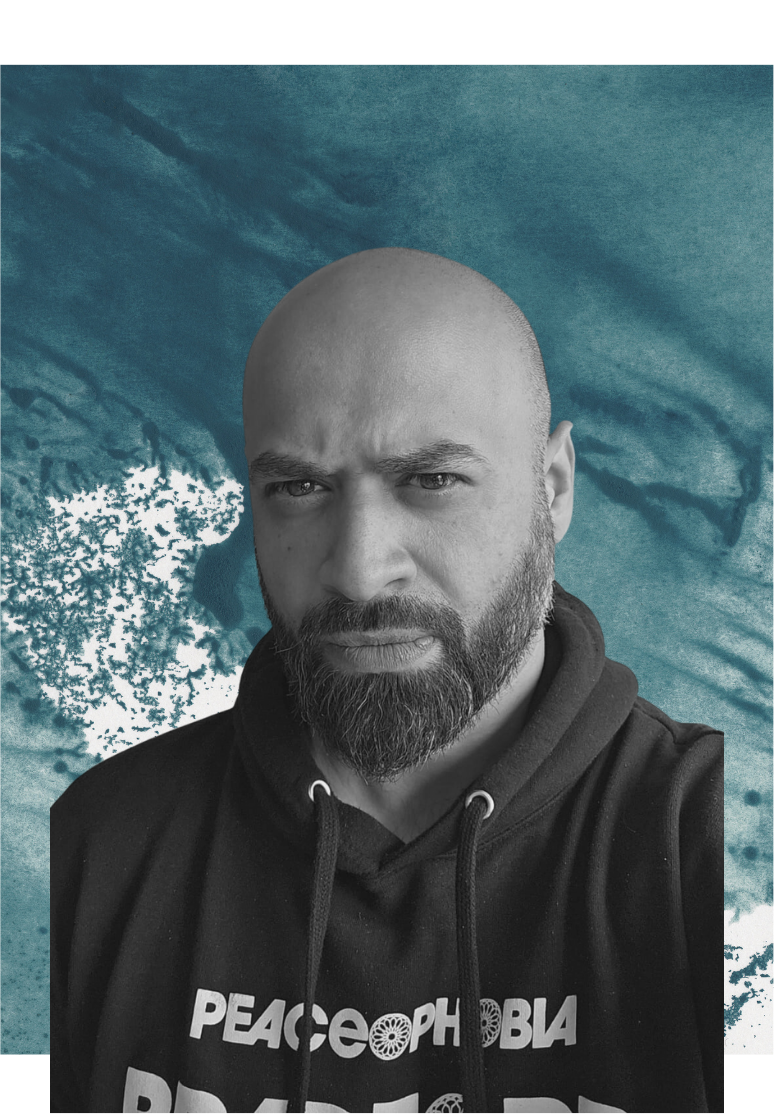
By Ali Amla, SNS' Youth & Partnerships Director
One of the best ways to persuade others is with your ears, by listening to them - to connect at a human level, to humanise each other, to listen in order to understand and not to simply respond. To hold space before introducing your thoughts and opinions. Not to debate or to change one another's views but to genuinely grapple with them. The skills required to do this are in greater demand than ever before.
At a time when emotions are running high, elephants are on the rampage, binary thinking is increasing, interfaith relations have broken down, and there's a lack of empathy and unwillingness to address the polarisation.
I reflect as I travel back from one of the highlights of my career; speaking to senior educators on recognising and countering antisemitism and Islamophobia in relation to Israel-Palestine, organised by UNESCO. I've spent the last three years crafting safe spaces to have uncomfortable conversations. I have spoken to over 500 teachers, youth workers, leaders and civil servants in the last few months. During these workshops I have spent time listening, grappling with our thoughts, challenging and being challenged.
It hasn't been plain sailing; my identity as a British Muslim of Indian heritage has an impact when I step into the room. There are perceptions and presumptions about who I am and where I stand. I don't believe in neutrality; we all have political opinions, leanings, and dare I admit it, implicit bias and prejudice. However, don't we all? As an educator, I emphasise being impartial and encourage all educators to be consistently impartial. A lack of consistency in impartiality will be challenged, especially when not being impartial for one conflict and overly emphasising on impartiality for another.
I don't deny that our work at Solutions Not Sides is sensitive and emotionally triggering. It has become even harder since October 7th and the 1,200 Israelis killed and taken hostage and the Palestinians killed in their thousands. Our integral value of non-violence should be testimony to our stance and we shouldn’t feel pulled into issuing statements of condemnation. The Quran teaches a universal value for life in Surah Maidah - whoever kills an innocent person it is as though he has killed the whole of humankind, whoever saves a life is as though he has saved all humankind.
There have been those who are actively shutting down dialogue and even trying to shut down my voice, some of it due to their own triggers, their prejudice, hatred, Islamophobic stereotypes, denial of Palestinian heritage and culture, Nakba denial and racism. Similarly there are those feeding antisemitic conspiracies about Solutions Not Sides, who share Holocaust denial, distortion and trivialisation - often using the language of anti-Zionism to hide their antisemitism. Nevertheless, anti-Zionism should not be conflated with antisemitism. Criticising the state of Israel, the actions of its government and army does not constitute antisemitism. However, I must be bold - if anti-Zionist narratives are based upon antisemitic conspiracy theories, tropes or stereotypes then the line is clearly crossed and it is unacceptable. A rejection of hatred is necessary and I will challenge Islamophobia and antisemitism equally. I appreciate the sensitivities of addressing both, and I have experienced being uninvited from conferences as I have been adamant in speaking about antisemitism and Islamophobia and how it relates to Israel-Palestine.
Leadership requires a fine balance of courage, determination and professional humility. The current crisis requires open, honest and respectful dialogue. A firm commitment to listen to different opinions, disagree respectfully and have empathy. Unfortunately I am seeing lots of conversations being shut down, voices being silenced and communities being demonised, this is causing society to be trapped in a cycle of anger, upset and fear.
I refuse to be silenced, I would be more than happy to have a coffee, break bread together or meet virtually. It’s good to talk, it’s even better to listen. I am reaching out with an olive branch in humility, kindness and compassion. I am more than willing to listen. We may not agree at the end but I will part ways with a smile and a handshake. The question is, are you willing to meet and listen?